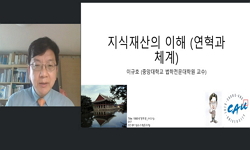Purpose: The purpose of study was to describe knowledge and attitude to Attention Deficit Hyperactive Disorder (ADHD) in preschool teachers in Korea. Methods: Survey methodology using a self administered questionnaire was employed as the research desi...
http://chineseinput.net/에서 pinyin(병음)방식으로 중국어를 변환할 수 있습니다.
변환된 중국어를 복사하여 사용하시면 됩니다.
- 中文 을 입력하시려면 zhongwen을 입력하시고 space를누르시면됩니다.
- 北京 을 입력하시려면 beijing을 입력하시고 space를 누르시면 됩니다.


보육교사의 주의력결핍과잉행동장애에 대한 지식수준 및 태도 = Knowledge and Attitude to Attention Deficit Hyperactive Disorder in Korean Preschool Teachers
한글로보기https://www.riss.kr/link?id=A103938050
- 저자
- 발행기관
- 학술지명
- 권호사항
-
발행연도
2009
-
작성언어
Korean
-
주제어
ADHD ; Knowledge ; Attitude ; Day care centers ; Faculty ; 주의력결핍과잉행동장애 ; 지식 ; 태도 ; 보육시설 ; 교사 ; ADHD ; Knowledge ; Attitude ; Day care centers ; Faculty
-
등재정보
KCI등재,SCOPUS
-
자료형태
학술저널
- 발행기관 URL
-
수록면
383-391(9쪽)
-
KCI 피인용횟수
15
- 제공처
-
0
상세조회 -
0
다운로드
부가정보
다국어 초록 (Multilingual Abstract)
Purpose: The purpose of study was to describe knowledge and attitude to Attention Deficit Hyperactive Disorder (ADHD)
in preschool teachers in Korea. Methods: Survey methodology using a self administered questionnaire was employed as
the research design. Knowledge and attitude were measured with a questionnaire modified from Jerome, Gordon, and
Hustler (1994) and Ghanizadeh, Bahredar, and Moeini (2006). Of 223 questionnaires mailed out to 42 daycare centers in
one district in Seoul, 164 questionnaires (73.5%) were used for data analysis. Data analysis was done using SPSS.WIN
15.0. Results: The mean score on knowledge for the teachers was 11.27 (59.3%) out of maximum score of 19. For question
items, the percentage of correct answers related to etiology of ADHD was under 10% and the correct rate regarding
treatment of ADHD was over 90%. Preschool teachers had a mean score on attitude of 20.77 out of 33. Less than 50%
of the teachers reported positive attitudes toward the child with ADHD and over 90% agreed that the child with ADHD
needs a special environment and specially trained teachers. Age (r=.236, p=.002) and marital status (t=-3.661, p=.000)
were significantly related to attitude toward the child with ADHD. Knowledge and attitude had a significant positive correlation
(r=.245, p=.001). Conclusion: These results suggest that educational programs and strategies should be developed
to increase knowledge of preschool teachers on ADHD. Public health nurses also need to develop and implement
education programs for teachers at daycare centers and others involved in child care in the community.
참고문헌 (Reference)
1 Healey, D. M., "impact of impairment criteria on rates of ADHD diagnoses in preschoolers" 36 : 771-778, 2008
2 Sherman, J., "Thinking positively: How some characteristics of ADHD can be adaptive and accepted in the classroom" 82 : 196-200, 2006
3 Daniel, L., "Teachers' attitudes toward attention deficit/hyperactivity disorder (ADHD): Effects on student self-concept" 2002
4 Glass, C. S., "Teacher perception of incidence and management of attention deficit hyperactivity disorder" 121 : 412-420, 2000
5 Dulcan, M. K., "Summary of the practice parameters for the assessment and treatment of children, adolescent, and adult with ADHD" 36 : 1311-1317, 1997
6 Ministry for Health, Welfare and Family Affairs, "Statistics on child care programme" Ministry for Health, Welfare and Family Affairs 2008
7 Kendall, J., "Sibling accounts of attention deficit hyperactivity disorder" 38 : 117-136, 1999
8 Pineda, D. N., "Prevalence of attention-deficit/hyperactivity disorder symptoms in 4 to 17 year old children in the general population" 27 : 455-464, 1999
9 Stormont, M., "Preschool teacher's Knowledge, opinions, and educational experiences with attention deficit/hyperactivity disorder" 28 (28): 52-61, 2005
10 American Academy of Child and Adolescent Psychiatry, "Practice parameter for the assessment and treatment of children and adolescent with attention-deficit/hyperactive disorder" 46 : 894-921, 2007
1 Healey, D. M., "impact of impairment criteria on rates of ADHD diagnoses in preschoolers" 36 : 771-778, 2008
2 Sherman, J., "Thinking positively: How some characteristics of ADHD can be adaptive and accepted in the classroom" 82 : 196-200, 2006
3 Daniel, L., "Teachers' attitudes toward attention deficit/hyperactivity disorder (ADHD): Effects on student self-concept" 2002
4 Glass, C. S., "Teacher perception of incidence and management of attention deficit hyperactivity disorder" 121 : 412-420, 2000
5 Dulcan, M. K., "Summary of the practice parameters for the assessment and treatment of children, adolescent, and adult with ADHD" 36 : 1311-1317, 1997
6 Ministry for Health, Welfare and Family Affairs, "Statistics on child care programme" Ministry for Health, Welfare and Family Affairs 2008
7 Kendall, J., "Sibling accounts of attention deficit hyperactivity disorder" 38 : 117-136, 1999
8 Pineda, D. N., "Prevalence of attention-deficit/hyperactivity disorder symptoms in 4 to 17 year old children in the general population" 27 : 455-464, 1999
9 Stormont, M., "Preschool teacher's Knowledge, opinions, and educational experiences with attention deficit/hyperactivity disorder" 28 (28): 52-61, 2005
10 American Academy of Child and Adolescent Psychiatry, "Practice parameter for the assessment and treatment of children and adolescent with attention-deficit/hyperactive disorder" 46 : 894-921, 2007
11 Spencer, T., "Pharmacotherapy of attention-deficit hyperactivity disorder across the life cycle" 35 : 409-432, 1996
12 Miller, W. R., "Motivational interviewing: preparing people for change (2nd ed.)" Guilford Press 2002
13 Runnheim, V. A., "Medicating students with emotional and behavioral and ADHD: A state survey" 21 : 306-314, 1996
14 Gimpel, G. A., "Maternal report of attention deficit hyperactivity disorder symptoms in preschool children" 26 : 163-179, 2000
15 Ghanizadeh, A., "Knowledge and attitudes toward attention deficit hyperactivity disorder among elementary school teachers" 63 : 84-88, 2006
16 Bekle, B., "Knowledge and attitudes about attention-deficit disorder (ADHD): A comparison practicing teachers and undergraduate education students" 7 : 151-161, 2004
17 오희영, "Knowledge and Attitudes of School Nurses to Attention-Deficit Hyperactivity Disorder (ADHD)" 아동간호학회 14 (14): 243-251, 2008
18 Malhi, P., "Impact pf parent andteacher concordance on diagnosing attention deficit hyperactivity disorder and its sub-type" 75 : 223-228, 2008
19 Cho, S. C., "How to teach inattention children" Samteo 2007
20 Erdfelder, E., "GPOWER: A general power analysis program" 28 : 1-11, 1996
21 Grynkewich, M. A., "Elementary and secondary preservice educators' attitudes and knowledge about attention-deficit/hyperactivity disorder" University of Arizona 1996
22 Biedermn, J., "Does attention deficit hyperactivity disorder impact on the developmental course of drug and alcohol abuse and de-pendence?" 44 : 269-273, 1998
23 American Psychiatric Association, "Diagnostic statistical manual Ⅳ" American Pediatric Association 2000
24 August, G. J., "Diagnostic stability of ADHD in a community sample of school-aged children screened for distruptive behavior" 26 : 345-356, 1998
25 Wolraich, M. L., "Comparison of diagnostic criteria for attention deficit hyperactive disorder in a country-wide sample" 35 : 319-324, 1996
26 Brook, U., "Attitude and knowledge of attention deficit hyperactivity disorder and learning disability among high school teachers" 40 : 247-252, 2000
27 Barkley, R. A., "Attention-deficit hyperactivity disorder: a handbook for diagnosis and treatment (3rd ed.)" Guilford Publications, Inc 2006
28 Döpfner, M., "Area for future investment in the field of ADHD: Preschoolers and clinical networks" 13 : 130-135, 2004
29 Jerome, L., "A comparison of American and Canadian teachers' knowledge and attitudes towards attention deficit hyperactivity disorder (ADHD)" 39 : 563-567, 1994
동일학술지(권/호) 다른 논문
-
From Their Own Response: Experiences of Korean Children with Chronic Illness and Their Families
- 한국아동간호학회
- 박은숙
- 2009
- KCI등재,SCOPUS
-
부모의 양육태도와 부·모-자녀 의사소통이 학령기 아동의 자기효능감에 미치는 영향
- 한국아동간호학회
- 홍연란
- 2009
- KCI등재,SCOPUS
-
중학생이 지각한 자아존중감, 생의 의미 및 영적 안녕에 관한 연구
- 한국아동간호학회
- 강경아
- 2009
- KCI등재,SCOPUS
-
- 한국아동간호학회
- 안혜영
- 2009
- KCI등재,SCOPUS
분석정보
인용정보 인용지수 설명보기
학술지 이력
| 연월일 | 이력구분 | 이력상세 | 등재구분 |
|---|---|---|---|
| 2023 | 평가예정 | 해외DB학술지평가 신청대상 (해외등재 학술지 평가) | |
| 2020-01-01 | 평가 | 등재학술지 유지 (해외등재 학술지 평가) |  |
| 2015-10-02 | 학회명변경 | 한글명 : 아동간호학회 -> 한국아동간호학회 |  |
| 2015-01-01 | 평가 | 등재학술지 유지 (등재유지) |  |
| 2012-12-24 | 학술지명변경 | 한글명 : Journal of Korean Academy of Child Health Nursing -> Child Health Nursing Research외국어명 : Journal of Korean Academy of Child Health Nursing -> Child Health Nursing Research |  |
| 2011-01-01 | 평가 | 등재학술지 유지 (등재유지) |  |
| 2010-12-24 | 학술지명변경 | 한글명 : 아동간호학회지 -> Journal of Korean Academy of Child Health Nursing |  |
| 2010-08-21 | 학술지명변경 | 한글명 : 대한아동간호학회지 -> 아동간호학회지 |  |
| 2009-01-01 | 평가 | 등재학술지 유지 (등재유지) |  |
| 2008-07-01 | 학회명변경 | 한글명 : 대한아동간호학회 -> 아동간호학회영문명 : Korean Academic Society Of Child Health Nursing -> Korean Academy of Child Health Nursing |  |
| 2006-01-01 | 평가 | 등재학술지 선정 (등재후보2차) |  |
| 2005-05-28 | 학술지명변경 | 외국어명 : The Korean Journal of Child Halth Nursing -> Journal of Korean Academy of Child Health Nursing |  |
| 2005-01-01 | 평가 | 등재후보 1차 PASS (등재후보1차) |  |
| 2003-01-01 | 평가 | 등재후보학술지 선정 (신규평가) |  |
학술지 인용정보
| 기준연도 | WOS-KCI 통합IF(2년) | KCIF(2년) | KCIF(3년) |
|---|---|---|---|
| 2016 | 1.04 | 1.04 | 1.15 |
| KCIF(4년) | KCIF(5년) | 중심성지수(3년) | 즉시성지수 |
| 1.11 | 1.19 | 1.497 | 0.1 |




 KCI
KCI






